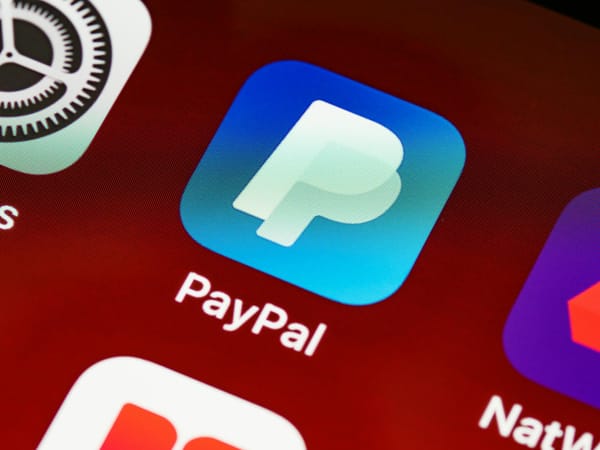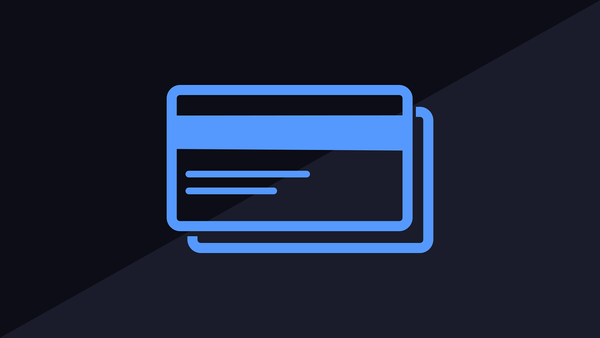8 Ways to Protect Your Very Small Business Reputation Online

Your online reputation is how people perceive your business based on reviews, social media interactions, and search engine results. It's a reflection of the trust customers have in your company. It can make or break your business.
You can shape your online reputation through social media, your website, press releases, and other public content. But it's not just about what you say—it's also about what others say and how safe they feel in their interactions with you. Negative reviews, false claims, or data breaches can harm how customers see you.
Why Should You Protect Your Business Online Reputation?
A strong reputation builds customer loyalty, attracts new clients, and helps you stand out. On the flip side, a damaged reputation leads to lost sales and missed opportunities, no matter how great your products or services are.
To stay on top of your online reputation, make sure that your website provides a secure experience by protecting customers' data and transactions, keep track of what's being said about your business, and have a plan in place for handling unexpected situations such as a breach.
Your online reputation management has three main goals:
1. Building awareness: Whether you're a new business, launching a product, or entering a new market, the goal is to boost your brand's visibility – and this usually involves using social media.
2. Maintaining trust: Once you have a good reputation, you need to work at keeping it. This involves continuous monitoring and addressing any issues that come up – from bad reviews to hackers and scammers.
3. Handling events: When things go in an unexpected way, don't panic and act according to the plan you have for it.
Who or What Can Ruin Your Small Business Reputation?
The content that you post online (including pictures, videos, and information on your website or social media platforms) can be copied and reused by anyone. Scammers can easily impersonate your company by creating fake accounts that look just like yours. They may target your followers, pretend to be you, and trick people into giving money or sensitive information using social engineering tactics. This is just one of the many ways in which your reputation can be targeted.
The internet is full of dangers that can affect how people see your business.
- Cyber Attacks: Hackers stealing customer data can severely damage trust in your business. If customers feel their personal information is at risk, they'll be less likely to return or recommend you to others.
- Fake Accounts or Impersonation: Fraudsters can create fake accounts pretending to be your business, tricking customers into scams. This not only harms your reputation but can also lead to financial loss and a loss of trust in your brand.
- Scams and Fraud: Falling victim to phishing or business email compromise scams can expose sensitive information, leading to data breaches and financial loss. These attacks target small businesses due to weaker security measures and can result in legal and financial penalties.
- Ransomware: Ransomware is one of the most dangerous threats to small businesses. It locks down your systems, holding your data hostage until a ransom is paid. Not only does this disrupt operations, but it can also result in data loss and severe financial damage if customer or business information is compromised.
Steps to Protect Your Business's Online Reputation
- Secure your devices and network
Why it Matters: Your devices and network are the gateways to your business's sensitive data. If they're not protected, cybercriminals can easily access and compromise your systems, putting your business, customers, and reputation at risk. Malware, viruses, and ransomware thrive in unsecured environments, while an unprotected network allows attackers to spy or manipulate your data.
What to Do:
- Install and maintain anti-malware software on all devices that access your business systems, including company-owned and devices used by staff.
- Only download apps from trusted sources like the Apple Store or Google Play Store.
- Educate staff on safe online practices, such as safe browsing and device usage practices.
- If employees need remote access, set up a VPN (Virtual Private Network) to secure those connections.
- Segment your network with VLANs to control which parts of your business can be accessed by different users, keeping unauthorized users out of sensitive systems.
Related: Why Cybersecurity Training and Awareness Are Essential for Any Small Business
What Key Cyberthreats Do Small Businesses Face?
2. Fortify your company website
Why it Matters: A compromised website can spread malware leading customers to believe your business is untrustworthy or careless with their data. Customers are less likely to trust a company with an insecure website.
What to Do:
- Get an SSL certificate for your website
- Regularly update your website's software, plugins, and themes to patch any vulnerabilities.
- Implement strong, unique passwords for all user accounts and consider using a Password Manager.
- Conduct regular security audits to identify and fix potential weak spots.
3. Protect your social media accounts
Why it Matters: Social media accounts are often prime targets for hackers. A compromised account can spread misinformation, scam your customers, or even lock you out of your own social media entirely.
What to do:
- Enable two-factor authentication (2FA) on all accounts, including social media, email, cloud services, and banking apps.
- Keep track of the unique account recovery codes you get when creating accounts on platforms.
- Set up a recovery email and phone number for added security.
- Post only original content and ensure it complies with platform guidelines.
- If you use a third party to manage your social media accounts, ensure they sign a non-disclosure agreement (NDA) and change passwords once their work is complete.
4. Monitor your business online presence
Why it Matters: Your business's reputation extends beyond social media. Fake accounts, data breaches, or leaked email addresses can damage customer trust and your brand. Monitoring your entire online presence helps you stay ahead of potential threats, ensuring you catch issues early.
What to Do:
- Set up Google Alerts or use monitoring tools to keep track of online mentions of your business and domain.
- Check if your business email has been exposed in a data breach using tools like Bitdefender Digital Identity Protection and take immediate action if necessary.
- Engage with reviews and comments to address customer concerns.
5. Double-check new or unusual requests
Why it Matters: Scammers often impersonate suppliers, tech support, or business contacts, requesting changes to payment details. Without a second check, you could easily fall victim to invoice scams or fraudulent transactions.
For instance, if you receive an email from a supplier requesting a change to their regular bank account number, call them to verify that the email came from them.
What to Do:
- Verify financial transactions, especially when they involve new suppliers or unusual requests.
- Train staff to identify phishing emails and suspicious requests.
Related:
Top 10 Scams Targeting Very Small Businesses: How to Stay Safe and What to Do If You're Scammed
Protect your business against email compromise
6. Only collect the data you really need
Why it Matters: Collecting unnecessary customer data increases your risk. If that data is stolen, it could expose your business to legal and financial repercussions.
What to Do:
- Only ask for the information you truly need from customers, and explain why you're collecting it.
- Encrypt customer data, whether it's being transmitted (through HTTPS forms) or stored.
- Develop a clear privacy policy and share it with customers, outlining how you collect, store, and use their data.
Related: 10 Cybersecurity Tips to Protect Your Small Business Data
7. Collaborate with specialists, not scammers
Why it Matters: Building partnerships can enhance your authority and provide valuable connections, but working with the wrong people can harm your business's reputation. Scammers may pose as industry experts, loan or grant specialists, or tech support teams to gain your trust.
What to Do:
- Carefully verify any potential partners or consultants. Look at their credentials, reviews, and past work before entering into an agreement.
- If you're sharing sensitive business information, consider using an NDA (Non-Disclosure Agreement) to protect yourself.
- After any collaboration, reassess security by updating passwords and reviewing access controls.
8. Know what to do in case of a breach or scam
Why it Matters: A swift response can minimize the damage if your business is breached, an account is impersonated, or you fall victim to a scam or a ransom attack. Ignoring or delaying action can make recovery much harder.
What to Do:
- In Case of a Breach: Immediately isolate affected systems, change all passwords, and alert your customers about potential data exposure. Consider hiring a cybersecurity expert to assess the damage and secure your systems.
- If an Account is Impersonated: Report the fake account to the platform, notify your customers, and publicly clarify the situation.
- If You Fall for a Scam: Stop any payments immediately, alert your bank, and file a police report if necessary. Let customers know about the incident and what steps you're taking to resolve it.
- In Case of a Ransomware Attack: Disconnect infected systems from the network to prevent the spread of the malware. Do not pay the ransom, as it doesn't guarantee data recovery and may make you a repeat target. Contact law enforcement and engage a cybersecurity professional to help recover data, remove the ransomware, and strengthen your defenses. Let customers know if their data was compromised and what you're doing to protect it moving forward.
How To Protect Your Small Business
Maintaining your online reputation is an ongoing process. The more your business thrives, the more you need to focus on safety to keep online criminals at bay.
To make sure you're covered, consider Bitdefender Ultimate Small Business Security. It's a top-notch solution that brings together antivirus, scam, fraud, email, digital identity, and breach protection, plus training tools for your team.
Here's what you get:
- Malware Protection: Keeps your business safe from ransomware and other harmful software across all devices - Windows PCs, Macs, iPhones, Android phones and Windows servers
- Phishing and Email Protection: Guards against sneaky phishing attacks and fake emails.
- Digital Identity Protection: Monitors your company's critical data and your employee's digital identities for any breaches or exposure.
- Password Manager: Helps you create strong passwords and stores them securely.
- VPN: Gives you unlimited secure remote access, protecting your data no matter where you work from.
- Scam Copilot: Powered by AI, it helps you spot scams and trains your staff to improve their cybersecurity skills.
Bitdefender Ultimate Small Business Security is a simple yet powerful cybersecurity solution designed for small business owners and entrepreneurs with 25 or fewer employees.
Find your plan here.
tags
Author
Cristina is a freelance writer and a mother of two living in Denmark. Her 15 years experience in communication includes developing content for tv, online, mobile apps, and a chatbot.
View all postsRight now Top posts
How to Protect Your WhatsApp from Hackers and Scammers – 8 Key Settings and Best Practices
April 03, 2025
Outpacing Cyberthreats: Bitdefender Together with Scuderia Ferrari HP in 2025
March 12, 2025
Streamjacking Scams On YouTube Leverage CS2 Pro Player Championships to Defraud Gamers
February 20, 2025
How to Identify and Protect Yourself from Gaming Laptop Scams
February 11, 2025
FOLLOW US ON SOCIAL MEDIA
You might also like
Bookmarks







